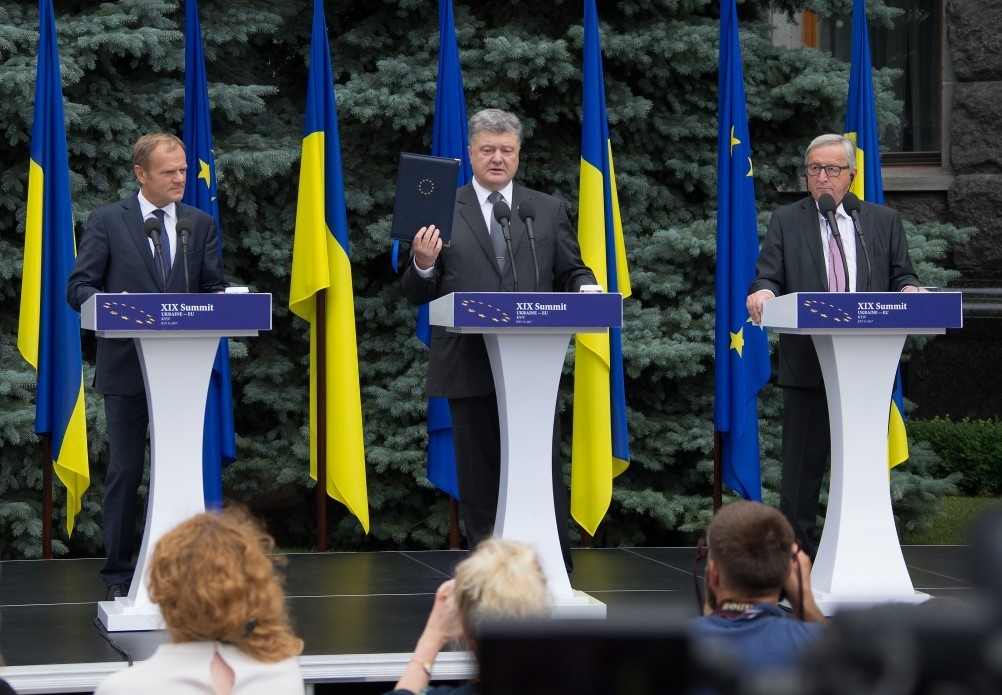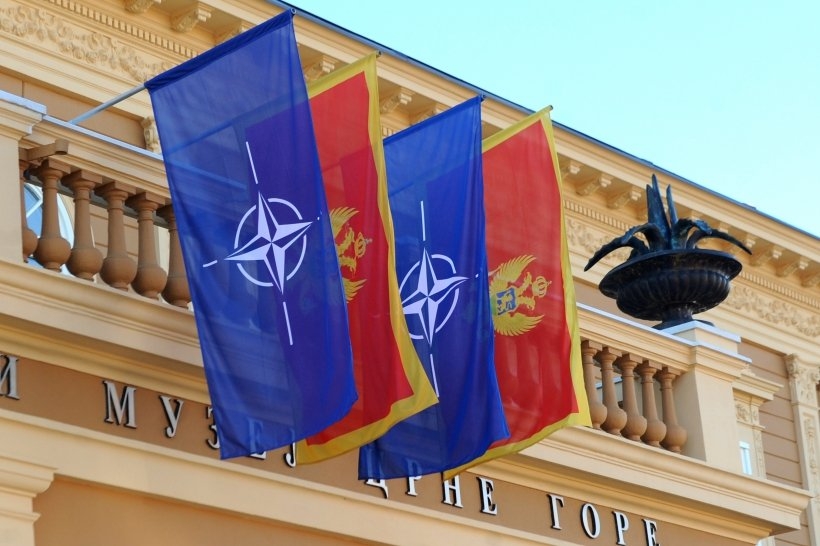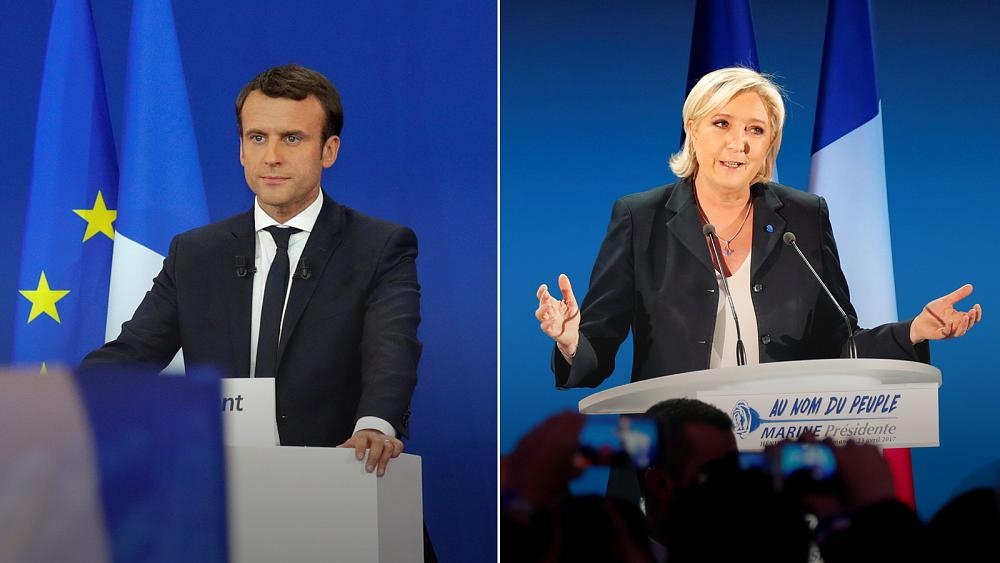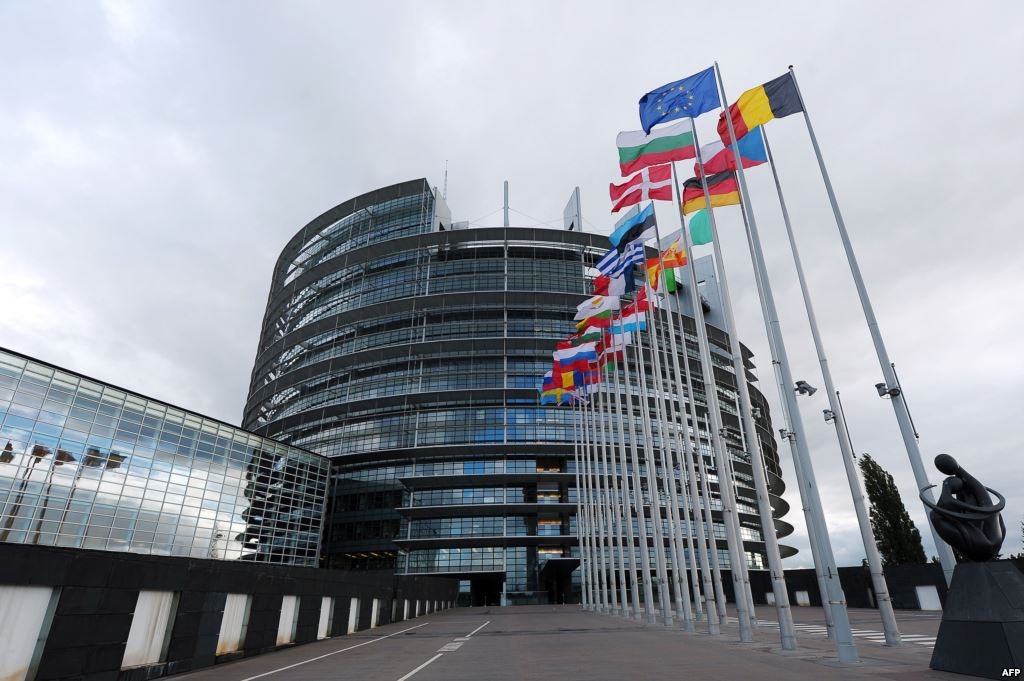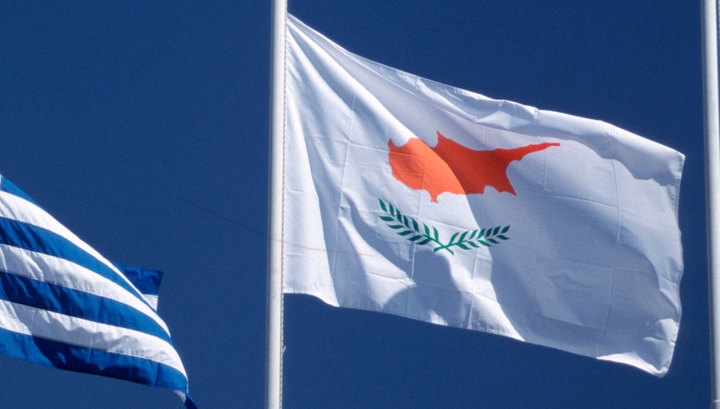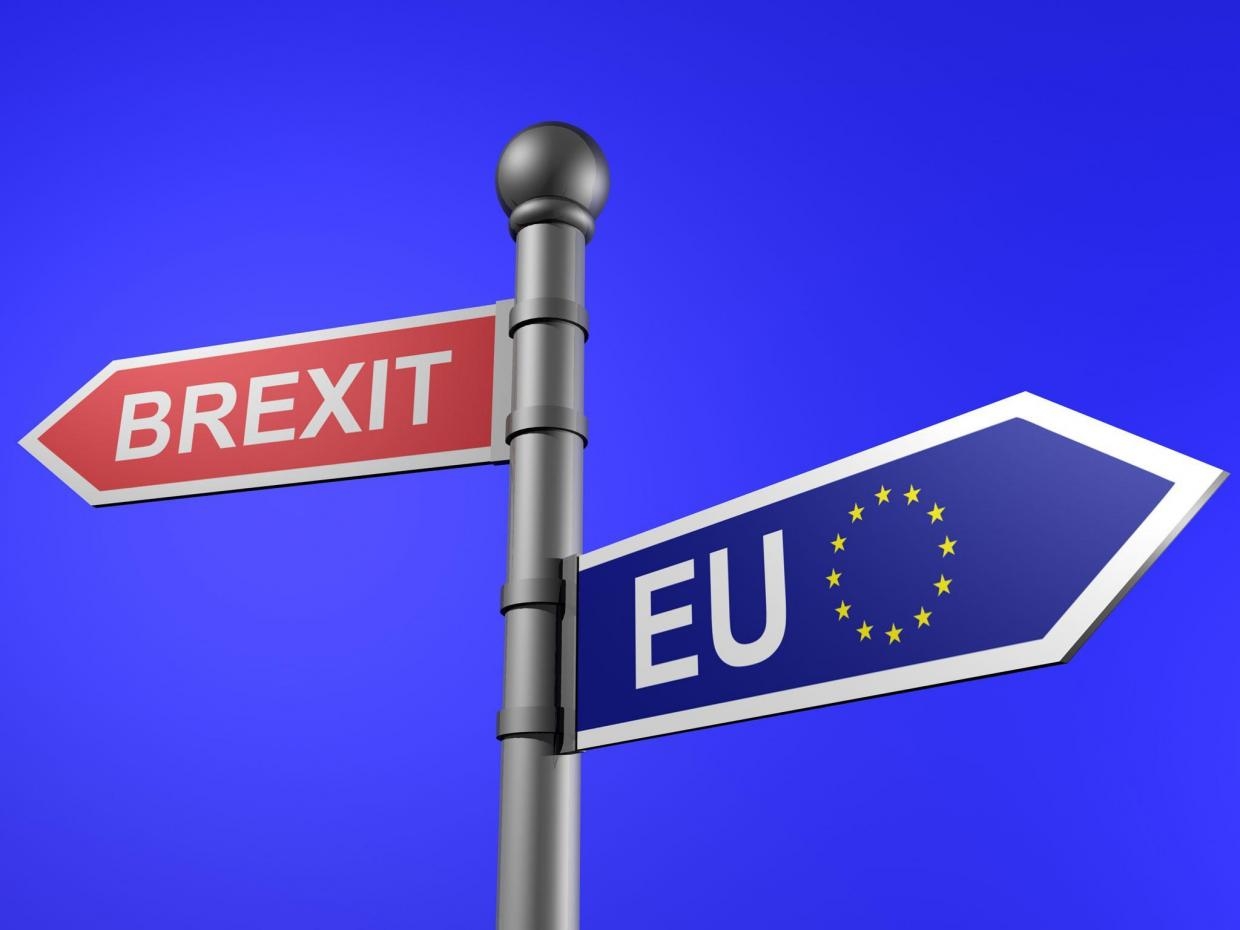Events and news
Ukraine-EU Summit: the beginning of uncertainty
On July 12-13, 2017 Ukraine-EU Summit was held in Kyiv with participation of the President of Ukraine Petro Poroshenko, European Commission President Jean-Claude Juncker and European Council President Donald Tusk. The parties discussed implementation of the Association Agreement, visa regime, reforms and combating corruption in Ukraine, the Russian aggression and the like. At the same time, this summit did not produce a joint statement via contradiction around phrases about "European aspirations" of Ukraine. However, the friendly rhetoric of the summit overshadows the beginning of the crisis in relations between Kyiv and Brussels. Absence of the joint declaration shows that the EU is not yet ready for further rapprochement to Ukraine. On the one hand, the slow pace of reforms and fight against corruption reduces the interest of Brussels to deepening of cooperation with our state. On the other hand, Ukraine has established a foothold among the secondary issues of the EU policy due to Brexit, migration, terrorism, financial problems and other priorities. In addition, euroskeptic and populist forces, despite the recent defeat at the polls in the Netherlands and France, will continue to play a prominent role in the political life of many countries. As a consequence, European aspirations of Ukraine and other countries neighboring the EU will give rise to ultra-right politicians harshly criticizing their governments and institutions in Brussels. Without further rapprochement with the EU, Ukraine will not have sufficient incentives to continue reforms and fight corruption. The main engine of political and economic transformation in the countries of Central and Eastern Europe was the prospect of EU membership. In the case of Ukraine, these "gingerbread" was the Association Agreement, deep and comprehensive free trade area (DCFTA) and visa-free regime, which many citizens and politicians mistakenly considered to be an intermediate step to EU membership. From now on "soft power" of the EU towards Ukraine is limited to financial support in conducting reforms and sanctions against Russia. It is obvious that the potential of such tools is not enough to ensure the irreversibility of the course of reforms and fight against corruption. Thus, this Ukraine – EU summit will be the beginning of uncertainty about the future of bilateral relations. The ability of Brussels to offer attractive initiative for Ukraine will depend on the continuation of reforms in Ukraine, progress in the fight against corruption, the preservation of democratic achievements and loyalty of Ukrainian citizens to the European idea and values....
Montenegro officially became a NATO member
Montenegro became the 29th NATO member. It was the first expansion of the Alliance over the past 8 years. Russia is naturally very nervous about any extension of the North Atlantic Alliance, as NATO is the personification of the American "imperialism" and other "evils" in the consciousness of the political elite and the ordinary Russian citizens. So Russia perceives the accidence of any country to NATO as an attack on its vital interests, even if that country poses no immediate threat to Russian national interests. But why is Russia so concerned? Earlier Russian big business was interested in the Montenegrin independence. And when Russians supported in 2006 the independence of Montenegro, they certainly did not expect Montenegro to become a member of the Alliance. The Kremlin hoped that the new Balkan state would be a "twin brother" of Serbia – a country with a pro-European policy, but with a significant Russian influence. Montenegro is a very small state (like a half of Kyiv region) for its accidence to NATO to be a threat to Russia or impact the balance of power in Europe. In addition, Montenegro does not have significant military strategic importance, since all the Adriatic coast except of 9 km of Bosnian land, has long been under the jurisdiction of the Alliance. Russia in the past two years has been trying to prevent Montenegro’s accidence to the Alliance. It made the following attempts. At the end of 2016 there was an attempted coup to remove the Montenegrin government from power. That government actively approached NATO and signed a Protocol on accession to the Alliance. However, due to successful special operations the coup was neutralized. The requirement of Russia to bring the matter of the accession of Montenegro to NATO to a national referendum was another attempt to intrude. It was said that joining NATO required such a referendum. In the Montenegrin society, the division between supporters and opponents of membership is about 50/50, with a slight superiority of the supporters of joining the Alliance. However, Montenegro did not hold such a referendum, since NATO membership does not require such a step. Information war became the third attempt. Russian media, which had mastered many of the Balkan languages, actively discredited the Euro-Atlantic course of the country and assured of the importance of close cooperation with Russia....
Elections in France: Europe's crucial day
On April 23, 2017 in France the first round of presidential elections will take place. Among the 11 presidential candidates there are five favourites who have a real chance to fight for access to the second round of elections. According to recent opinion polls, 24% of French citizens are ready to vote for the centre-left candidate Emmanuel Macron, 23% - for the leader of the extreme-right "National Front" Marine Le Pen, 19% - for the centre-right candidate Francois Fillon, 19% - for the ultra-leftist candidate Jean-Luc Melenchon and 8,5% - for the socialist Benoit Amon. While the choice of French citizens will be largely determined by the candidates` approaches to solving social and economic problems, migration, fight against terrorism, the global players are more interested in what will be the French foreign policy under the new president. Depending on the victory of one or another candidate the substantial changes in France's relations with key global players may occur. EU Macron, Fillon and Amon belong to the “euro-optimists”, although each of the three candidates sees the future of the EU in their own way. Emmanuel Macron stands for the deepening integration in financial, security and defence sector as well as the democratization of the EU. Francois Fillon proposes to deepen security cooperation in the EU, but to return more powers in other areas to national governments. Benoit Amon differs in the resistance to the austerity policy and intentions to democratize the EU. Thus, the victory of any of these candidates cannot resolve contradictions between different groups of EU countries. Yes, Macron`s victory will increase the contradictions between the Franco-German tandem and Central Europe countries, Fillon`s accession to power will bring France and Central and Northern Europe countries together but it may undermine the Franco-German relations, and Amon`s presidency will deepen the split between South and North Europe. Instead, the victory of extreme-right or ultra-leftist candidate in France will hurt the economy and prestige of the EU. If Marine Le Pen or Jean-Luc Melenchon will become the president, so France may withdraw from the Euro zone and the Schengen area and also submit Frexit to the national referendum. However Melenchon occupies a softer stance on the possible France withdrawal from the EU than the leader of the "National Front". USA French-American relations are likely to remain unchanged in case of victory of Emmanuel Macron or Francois Fillon. In this scenario, France will remain a part of the NATO military structure and continue to be one of the most important US allies in Europe. Despite the “awakening of the Anglo-Saxon world” (Brexit and Trump`s victory), Marine Le Pen`s accession to power will complicate relations between Paris and Washington because it will be harder for charismatic leaders of the two countries to achieve political or economic agreements. Bilateral relations will deteriorate further in case of victory of Jean-Luc Melenchon who considers NATO an instrument of “American imperialism”. Anti-Tramp statements of Benoit Amon will also complicate the Franco-American relations in the case of the socialist victory however a substantial revision of the strategic areas of bilateral cooperation won`t take place. Russia The most profitable scenario for Russia is the accession to power of Marine Le Pen or Jean-Luc Melenchon. The common goal unites the Kremlin and European extreme-right and ultra-leftist politicians: fragmentation of the EU and NATO. In addition, Le Pen or Melenchon can recognize the annexation of Crimea and help to build a new world order more acceptable to Russia. In case of Francois Fillon`s victory the French-Russian rapprochement will be limited by lifting the sanctions in connection with the “Ukrainian crisis” and the fight against terrorism in the Middle East. By Emmanuel Macron`s presidency France will try to simultaneously support sanctions against Russia and carry on dialogue with the Kremlin in solving of other international problems. Benoit Amon currently shows the most critical position towards Russia's actions in Ukraine and Syria, but the socialist has a very little chance to get into the second round of presidential elections. Expectations of Ukraine Ukrainian-French relations have never been close since the independence of Ukraine. Our country has never occupied an important place in the foreign policy of France. No matter who wins the election, Ukraine should not expect to deepen relations with France or Paris support of Kyiv rapprochement with the EU and NATO. The national interests of Ukraine may be considerably affected only by the change in the position of France in Normandy Quartet under the new president. In the case of a hypothetical victory of Benoit Amon France may take more loyal position to Ukraine on the conflict settlement in Donbas. If Emmanuel Macron will become the president, France is likely to continue the balanced and equidistance policy towards Ukraine and Russia, followed by Hollande. Instead, the victory of any of the three candidates - Marine Le Pen, Francois Fillon or Jean-Luc Melenchona - will lead to a rapprochement between France and Russia and worsen the international position of Ukraine. However, Ukraine must avoid the sole support of any of the presidential candidates in France and not to repeat the mistakes made by Ukrainian politicians and diplomats during the presidential elections in Poland in 2015, the United States and Moldova in 2016. In contrast, Ukraine should establish contacts with all the favourites of the election race and prepare for different scenarios of French foreign policy. ...
Electing President of the European Parliament: what matters?
January 17, 2017 the European Parliament elects the president. Seven candidates from different factions compete for the position. But the best chances of winning have candidates of two largest factions of the European Parliament - Antonio Tajani of the European People's Party and Gianni Pittella of the Progressive Alliance of Socialists and Democrats. President of the European Parliament is elected for 2.5 years. The President of the European Parliament is one of the highest political positions in the EU.There is such an informal practice that the President of the European Parliament in turns is elected of the two biggest factions - the European People's Party and the Progressive Alliance of Socialists and Democrats - to simplify the procedure of adopting the EU legislation. But this time because of Brexit, the growth of nationalist parties and other issues there is no mutual understanding between the major European factions. In particular, the candidate of the Socialists and Democrats Gianni Pittella opposed the monopolization of power in the EU by the EPP, as the representatives of the latter now hold the post of President of the European Commission and the President of the European Council. As a result, without the support of other factions, including sceptics, neither Tajani nor Pittella can expect to win. This year's presidential elections demonstrates the European crisis of management in the EU institutions, which takes place against the backdrop of Brexit, migration challenges, financial challenges and strengthen anti-European forces. The political struggle for the post of President of the European Parliament becomes acrimonious, as this is the only EU body, whose members are directly elected by the EU citizens. Elections of the President of the European Parliament may have an indirect impact on relations between Ukraine and the EU. The political battle for the presidency of the European Parliament once again demonstrates how difficult it is for the EU institutions to take decisions in turbulent times. The lack of consensus in the European Parliament is one of the reasons for the EU delay with visa-free regime for Ukraine....
The settlement of Cyprus conflict: lessons for Ukraine
Usually when it comes to frozen conflicts, the post soviet space is mentioned. But the Cyprus problem is one of exception. It is for more than 40 years as conflict remains frozen. The reason to intensify the search of solutions began in 2012, when in Cyprus shelf, mostly around the northern Turkish part of the island, was found deposits of gas. The same time, Egypt and Israel began to conduct energy exploration in their water area of the Mediterranean. The discovered fields were so large that the gas could be exported gas to Turkey, Greece and later in other European countries. Then the leaders of these countries realized that the Cyprus problem hinders the development of energy projects: it is impossible to lay the pipeline through the northern part of Cyprus as it is the unrecognized by the state. During the last two years there is a great progress in the negotiations, but still certain aspects block the process. Firstly, the territorial issue: it is unknown how the communities are going to reach an agreement on borders. Secondly, the issue of united Cyprus representation in future: it is unclear what kind of political system they are going to choose, maybe like in Bosnia and Herzegovina. Still Turkey tries to preserve main instrument of influence keeping its armed forces on the island and it is hard to resolve this problem. Turkish side argued that its military presence is needed to protect Turkish people on the island if Greece is get involved. But there is a great challenge which is controlled by external players such as Greece, Turkey or Great Britain. That is an aspiration of both sides to unite by making an agreement. The situation has changed from the referendum of 2004, when majority of Greece-Cypriot where against this plan. The only effective factor of negotiations is a pragmatic interest; all sides want to benefit from energy. It seems like an agreement is going to be made in the next several years. Besides, Turkey is interested in renewal of the EU membership negotiations, that’s why Erdogan is ready to reduce tensions in relations with Greece and Cyprus. For Turkey it is a way to compensate failures in internal policy by external policy achievements. The EU is also interested in successful negotiations as after the Arabian spring there were no meaningful results on international scene. And the Cyprus conflict settlement may demonstrate the EU diplomacy effectiveness. The only country not interested in the Cyprus conflict settlement is Russia. There are three reasons: geopolitical, financial and energetic. The offshore territory of Cyprus is the main financial reason. It is hard to forecast the future financial policy of Cyprus after possible uniting. Even if Putin says “it is time to take your money back” the answer of oligarchs will be “where would we hide them instead?”. Geopolitically Russia wants to have its own territory of exclusive influence in the Mediterranean, as it is Russian ambition since 18-th century “to reach the warm sea”. Also to support Assad regime Russia needs a developed logistic facilities and Cyprus can be a part of it. Russia has already made several attempts to solidify in the region. Russia has provided Cyprus with financial support, as decreasing the bailout rates and postponing the payments the same time. That is the reasons why Russia is not interested in uniting and demilitarization of Cyprus. Especially it is afraid of Cyprus to become the NATO member. As other involved countries (Greece, Turkey and Great Britain) are the members of the Alliance. Also Russian Federation is not interested of Cyprus to become the regional gaz-transit hub in the East Mediterranean. Russia has close relationship with the Geek part of Cyprus, as with the government, so with the opposition. Besides, financial investments and tourism has made this part of the island dependent from Russia. So the question is if the citizens of Cyprus are ready to change profitable cooperation with Russia for pragmatic energy cooperation. Surely, Russia can try to influence political and financial groups in power of Greek Cypriots to spread its ideas, like it was in Greece (warm relations with Tsipras). After the financial crisis Cyprus is also unsatisfied with the EU policy and it will be used by Russia. This is also a possibility to create anti-EU party and to support such a discontent among Cypriots. If nothing extraordinary happens in Turkey, Greece or Syria it is possible that the leaders of Greek and Turkish communities will reach an agreement during the next several years. But still it is unclear if they are able to implement such an agreement and to achieve the population support and to approve the plan on the referendum. Ukraine may have a lesson of the new negotiation on Cyprus reunion which can be used in reintegration of the Donbass. But such a reunion of Ukraine and occupied by Russia Donbas territories can take more than several decades. Without the political will of external players it is hard to reach an agreement. Besides, without the local population support both sides hardly unite the country. The Donbass reintegration can’t be done on the conditions in Cyprus analogy way as Ukraine and Russia has diametrically opposed view on regional security issues....

